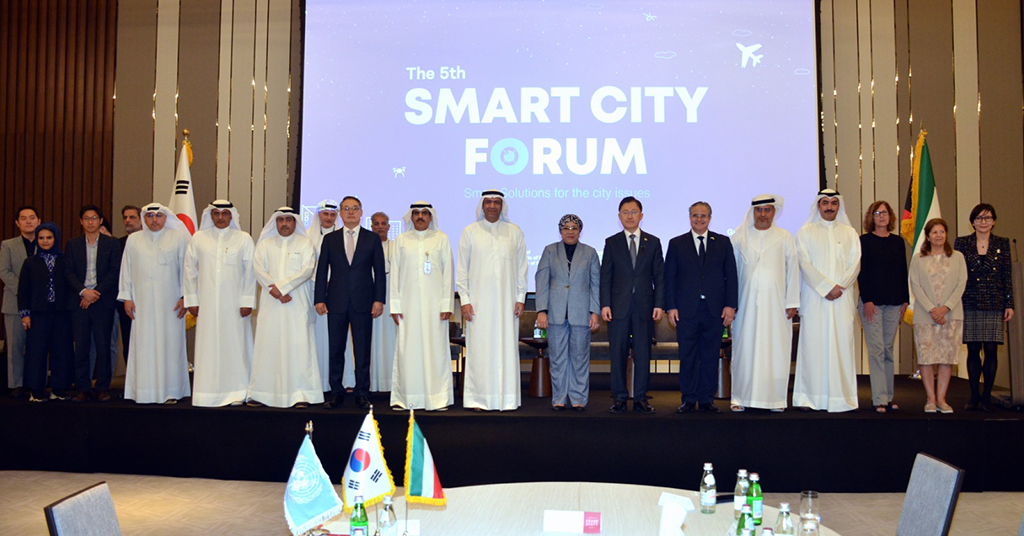By Majd Othman
KUWAIT: The Embassy of the Republic of Korea to Kuwait, United Nations and UN Habitat held the 5th Smart City forum on Monday in the presence of Chung Byung-ha, Ambassador of the Republic of Korea to Kuwait, Tarek El-Sheikh, United Nations Secretary General Representative & Resident Coordinator, several ambassadors of East Asian countries, members of diplomatic corps and personalities from the Kuwaiti business community.
"According to the UN, the world's urbanization rate will reach up to 70 percent by 2030, with the world population growing to 9 billion. This phenomenon will cause many sustainability issues that are interlinked to many problems," Ambassador Chung said in his speech. "The idea of a smart city emerged as a part of our efforts to answer questions about how we can resolve these urban problems in a smarter way and how we can make our cities more sustainable. It comprises all aspects of our city life. Now that most of us are living in urban areas, it is not just about our city life but our life itself," he said.
"Smart city doesn't only refer to futuristic city models equipped with all kinds of cutting-edge technologies as commonly imagined. It can be broadly defined as a platform to improve the quality of life for citizens, enhance the sustainability of cities and foster new industries by utilizing innovative technologies," Chung said.
"We all know that Kuwait is planning to construct many new cities, and is no exception to the quest for making cities smarter. I believe Kuwait 2035 vision eventually guides us towards 'Smart Kuwait'. Korea is ready to share our stories, our experiences, even our trials and errors, and more importantly listen what our Kuwaiti friends are dreaming about," he added."Both our countries are rising from the scourge of war. We have built our cities from the ashes of destruction. In many aspects, we can say we have the same vision."
The forum was held to strengthen cooperation for smart and sustainable cities, under the theme of "Smart Solutions for City Issues".The forum was divided into two sessions - "Smart Solutions for Infrastructure" and "Smart Solutions for Sustainable Cities". The UN's Sheikh said more than half of the world's people live in cities. By 2050, nearly seven in 10 cities will account for more than 70 percent of global carbon emissions and 60-80 percent of energy consumption. Rapid urbanization has created additional challenges, such as social inequality, traffic congestion, water contamination and associated health issues.
"Governments and municipalities can use information and communication technologies (ICTs) in combination with renewable energy and other technologies to build smarter and more sustainable cities for their citizens. A smart sustainable city is innovative. It uses ICTs to improve people's quality of life, make urban operations and services more efficient and boost its competitiveness, while ensuring that it meets the economic, social, environmental and cultural needs of present and future generations," Sheikh said.
"No city yet exists where all urban systems and services are connected. Many cities, however, are already on the path to becoming smart and sustainable. They rely on ICTs, for example, to enhance energy efficiency and waste management, improve housing and healthcare, optimize traffic flow and safety, monitor air quality, alert police to crimes occurring on the streets, and maintain high-quality water and sanitation," he said.
"Making rural communities smart and sustainable can improve the quality of life for rural inhabitants and help achieve the UN Sustainable Development Goals (SDGs). ICTs can help to accelerate the achievement of all 17 SDGs, including SDG 11, which calls for creating sustainable cities and communities," Sheikh pointed out.













